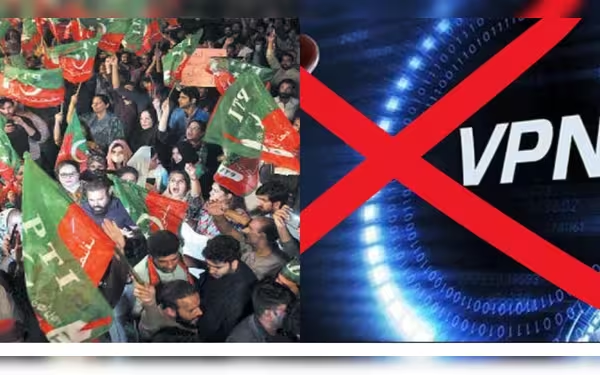Sunday, December 22, 2024 02:51 AM
PTA's VPN Crackdown During PTI Protest Sparks User Concerns
- PTA intensifies efforts to block unregistered VPNs.
- Mass participation in PTI protest affects VPN accessibility.
- 25,000 VPNs registered, but many remain unregistered.
 Image Credits: phoneworld_pk
Image Credits: phoneworld_pkPTA's crackdown on unregistered VPNs disrupts access during PTI's protest, raising concerns over online privacy and digital freedom.
The use of Virtual Private Networks (VPNs) has become increasingly popular in Pakistan, especially as citizens seek to access restricted content and maintain their online privacy. However, recent developments have raised concerns among users regarding the functionality of their VPNs. The Pakistan Telecommunication Authority (PTA) has ramped up efforts to block unregistered VPNs, which has led to significant disruptions for many users.
In a bid to enforce its regulations, the PTA has initiated a second trial aimed at blocking unregistered VPNs through a firewall. This trial, which spans two days, is designed to identify and eliminate VPNs that have not been registered with the authority. The full enforcement of this initiative is set to commence on December 1. It is important to note that the PTA had previously established a deadline of November 30 for users to register their VPNs. As of now, approximately 25,000 VPNs have been successfully registered, but this number may not be sufficient to accommodate the vast number of users relying on these services.
The timing of this trial is particularly noteworthy, as it coincides with the Pakistan Tehreek-e-Insaf (PTI) party's planned protest at D-Chowk in Islamabad. Former Prime Minister Imran Khan has called for mass participation in what he describes as a fight for justice and freedom. As a result, many users have reported difficulties accessing social media platforms, particularly X, even when their VPNs are activated. This situation has raised eyebrows and sparked discussions about the implications of the PTA's actions.
The government has defended its decision to block unregistered VPNs, asserting that the new firewall testing is intended to streamline the registration and whitelisting processes for VPNs. Officials argue that similar practices are in place in countries like China, Russia, Iran, and Turkey, where unregistered VPNs face complete bans. However, the PTA has assured users that business VPNs will remain unaffected by these measures.
This move by the PTA has ignited a debate regarding privacy and digital access in Pakistan. While the authority claims that its initiative aligns with global practices aimed at ensuring regulatory compliance, critics argue that it could infringe upon personal freedoms and limit access to vital information. Furthermore, questions arise about the practicality of completely blocking unregistered VPNs, as there are numerous methods available to bypass such restrictions.
The ongoing situation surrounding VPN usage in Pakistan highlights the delicate balance between regulatory compliance and individual freedoms. As the PTA continues its efforts to enforce its regulations, users must remain vigilant and informed about their options. The landscape of digital access is ever-evolving, and understanding the implications of these changes is crucial for maintaining one's online privacy and freedom.













